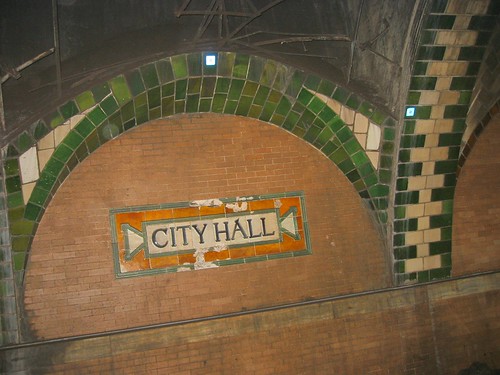
Will City Hall be willing to cover some of the MTA’s debt? (Image courtesy of flickr user rezendi)
The MTA’s current debt problems are no secret. For starters, I’ve written about it here, here and here over the last few months. But now New York City and state politicians are beginning to voice their concerns, according to recent reports.
The MTA’s massive debt comes from a confluence of largely historical circumstances. Poor management decisions and the decision to maintain a five-cent fare against the rate of inflation for decades combined with Robert Moses’ anti-subway policies and the financial collapse of New York City in the 1970s left the MTA with no money. With a need to maintain and upgrade the system, the MTA has pushed ahead with renovations by borrowing the money. We don’t, after all, want to end up with the problems the L is suffering through in Chicago.
But now the big ticket items are coming home to roost. With the Second Ave. subway groundbreaking set for April 12, the West Side extension for the 7 line on tap and the East Side LIRR connection on the horizon, New York politicians are concerned that broken promises by the federal government could leave the MTA looking at a debt problem. The Queens Courier had more last week:
Projected deficits and sudden borrowing by the Metropolitan Transportation Authority (MTA) have elected officials worried, with City Councilmember John C. Liu and State Senator John D. Sabini taking action to improve security and service without fare increases…
“It is irresponsible for the federal government to renege on their commitment to protect Americans, including those of us in New York on the front lines in this war against terrorism. The MTA’s unexpected and substantial borrowing also calls into question the adequacy of the Authority’s budgetary planning and its accountability in borrowing such huge sums. Ultimately, the riders will be forced to pay for this through sooner-than-necessary fare increases and that’s wholly unacceptable,” [Liu, Transportation Committee chair, said.]
While some of the council’s words can be seen as political posturing, I’m fully on board with their efforts to secure more funds for security from the federal government. The Department of Homeland Security doesn’t seem to understand the vulnerability of the New York City subways and regional rail system. With nearly 10 million riders a day on Metro-North, the LIRR and the city’s subway system, the MTA’s holdings are strategically vital aspects to the New York City — and thus, the entire US — economy.
In reality, the MTA should not be expected to saddle the burden of security when we have a government agency established for just that purpose. With necessary capital construction plans under way, the Feds need to step up their contributions to security. Hopefully, Liu and Sabini will continue their vocal cries for more resources devoted to rail security.

1 comment
http://www.crowninfrastructure.com